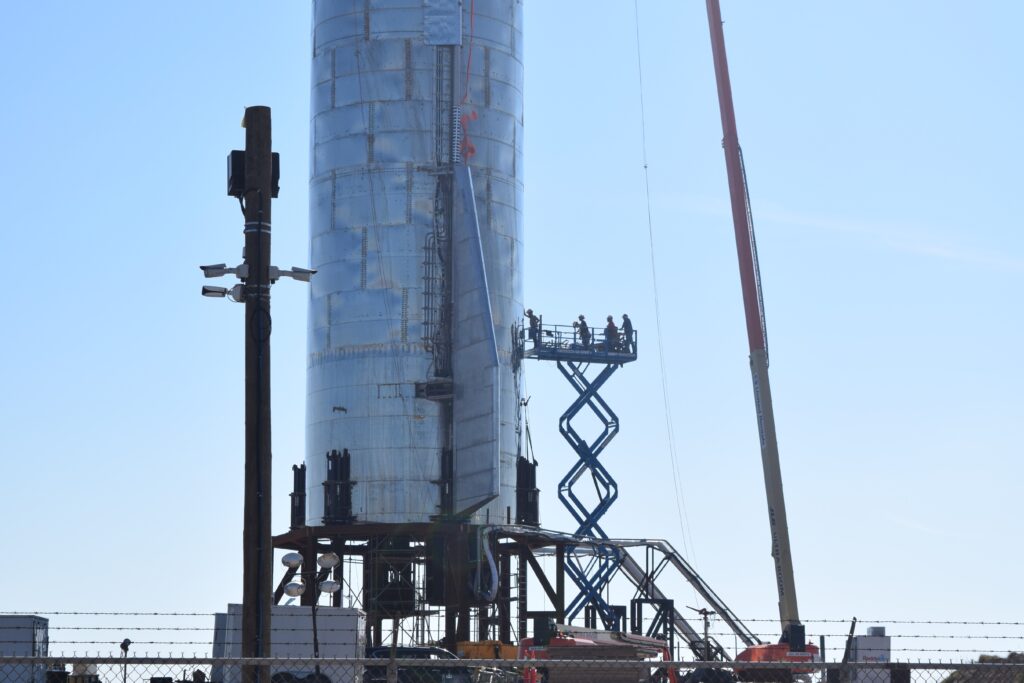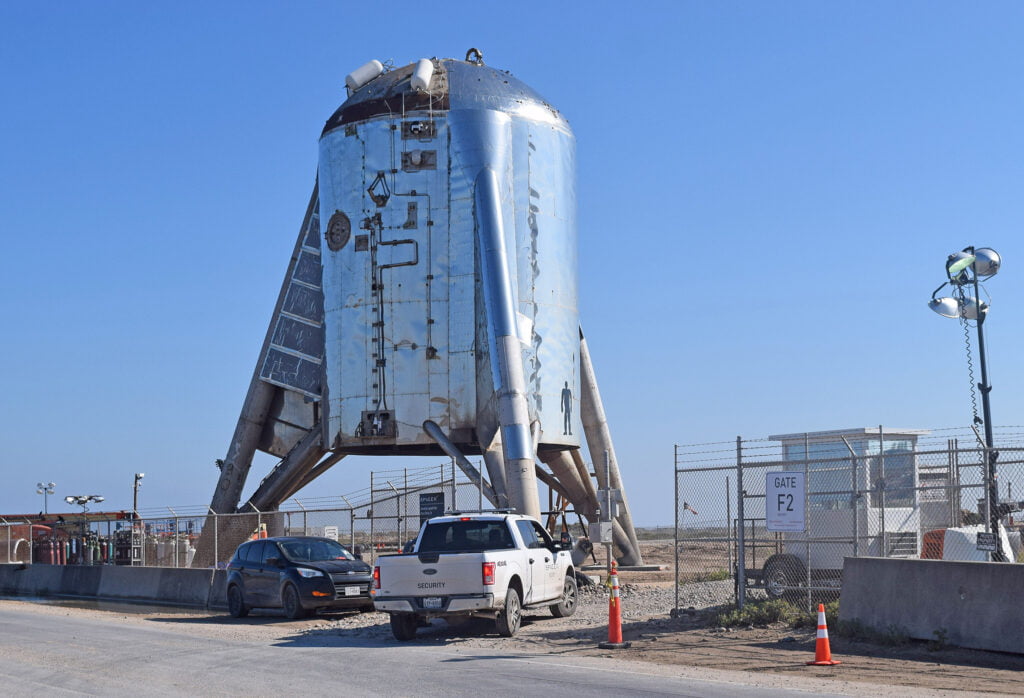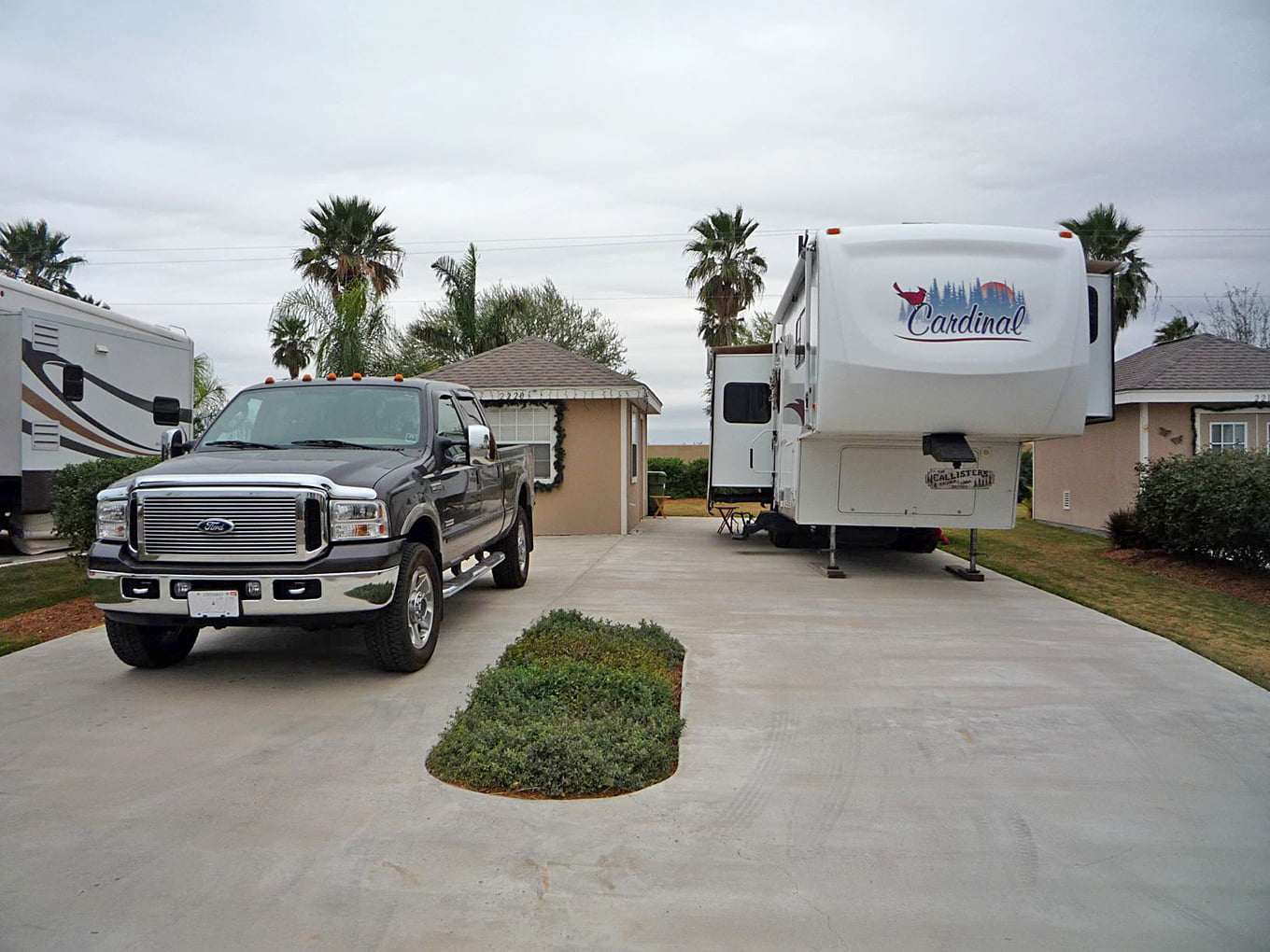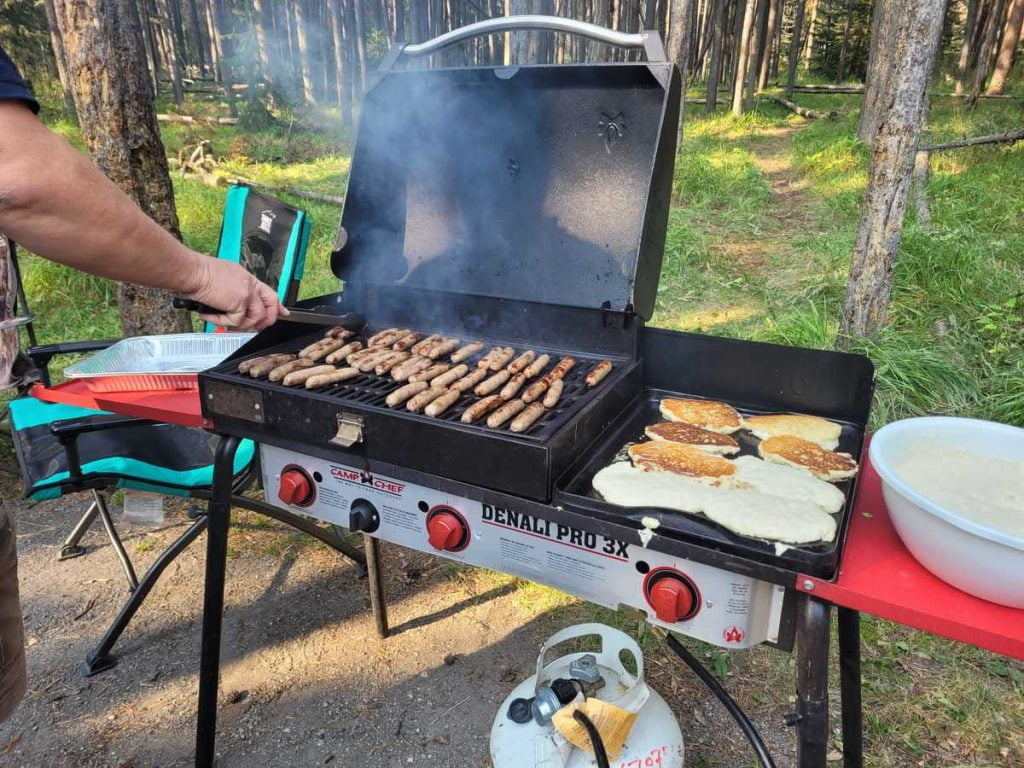It was March 2020 and the Canadian government told Canadian citizens, RVers, snowbirds, and vacationers to return to Canada as soon as possible. The Canadian government made the call because of the health risk from the COVID-19 virus.
Visibility was low due to heavy rain as Linda and I drove north through Georgia, moving our travel trailer towards the Tennessee border and our next campground. I am a copywriter, and I had a deadline to meet and no wireless or internet signal due to a storm.
We reached the campground in Tennessee by luck and in the torrential rain. Torrential rain had obscured our view of the road for most of the drive. I parked the travel trailer and ran through the rain and hail to the campground office.
In the distance, a wall of dark grey clouds reached down from the sky.
“Were those clouds starting to circle?” my mind registered as I ran.
The sky looked black and ominous, a tornado in the making.
My cell phone, with its unlimited data package, was useless. The storm had reduced my signal strength to less than one bar. I had to get to a landline telecommunication link, I needed an internet connection, and I needed it now! I had delayed sending a prepared copy due to the lack of an internet connection at the last campground. Stopping during the drive north was not a consideration due to the low visibility. Now I was in danger of committing a copywriter’s most unforgivable sin: missing a deadline.
Are We There Yet?
SpaceX has promised that its Starlink internet service will help remote locations, mobile workers, and RVers by pledging a global satellite internet connection. Yet, Starlink has not committed to when they will implement such a system. Will the promised Starlink internet service help RVers live and work in remote parts of the North American continent? Are we there yet?
SpaceX
A privately-owned company, SpaceX has its sights set on establishing a human settlement on Mars. Starlink, a subsidiary company of SpaceX, is looking at the deployment of thousands of Low-Earth Orbit communication satellites that will provide voice, internet, and TV signals to remote areas of the Earth. SpaceX is in the process of developing a reusable rocket booster motor for both these projects.

Photo: Mars mission test booster, Boca Chica
Boca Chica SpaceX Launch Site
I first took an interest in SpaceX in December 2019 while camping in Alamo Palms RV Park near McAllen, Texas, in the Rio Grande Valley. A group from the RV park took a day out to drive to Brownsville for lunch. We drove out to the SpaceX rocket development, testing, and launch/recovery facility in Boca Chica after lunch. The Boca Chica facility is located on the low-lying sand and bush floodplain, east of Brownsville, Texas.
The day after our visit, the test rocket we photographed blew up. By fate and 24 hours, I am still alive.

Photo: Launch / Return test booster hopper, Boca Chica
Return to Earth Under Their Power
However, SpaceX has two rockets. Both share similar design characteristics. The rocket boosters return to Earth under their own power, landing on a recovery ship in the Atlantic, and ultimately returning to Boca Chica, ready for reuse.
The Challenges of Working from Home
With Starlink, the future for RV-based remote work is almost here. After 15 years of working from my RV, true freedom is on its way. Soon, with Starlink Internet, there will no longer be a need to drive until you find an internet connection.
Moved into memory will be the need to select a campground because they “say” they have the internet — and be prepared to pay for the privilege. Gone will be the early morning dash to the rec-hall for coffee, small talk, and an email download. The pioneering days of working online from my RV are almost over.
It has been a blast, and I am proud to have been part of it. I enjoyed the absolute need to stop at McDonald’s, Burger King and Tim’s when in Canada, just so I could upload a technical review.
Today, to say, “I am working from home,” is a stamp of honour. It says, “I’m socially distancing for the good of the community, and my company trusts me.”
When I first started working remotely, there was a need for my expertise. But I wanted freedom from the office. I opted for pay by the quality of the finished article within the required timeframe. I built trust over the years.
Then I took my office on the road. People knew about, but didn’t discuss, my office on wheels or my exotic locations during video conferences or phone calls. I did not post images of me playing in the warm Pacific Ocean or 4X4 off-roading around cacti and through mango groves when my clients and colleagues in Canada were shovelling snow. There was an acceptance that I worked remotely and got the job done. There was no need for me to rub what I did on my time in the faces of the people paying me.
New Year 2021
It is said, “Character is what you do when nobody is watching.”
A remote worker is trusted. Don’t misuse it. Commit to meeting deadlines. Excuses for failure will suck you back into the office or the unemployed line. It is a privilege and challenge to be working as part of a team where every individual may be working in remote isolation. Today’s technology is helping.
Internet Link Available from Everywhere?
In December 2020, Starlink announced that it had won an $885,000,000 contract from the United States federal government to expand its experimental Starlink Satellite project. The plan is for thousands of satellites. Satellite link-up uses a specially designed modem type of device. Currently, the ground receiver/transmitter requires a fixed ground location. According to Starlink, this is about to change, making it a consideration for RVers.
In December 2020, Canada granted Starlink testing rights and bandwidth to provide signals to southern Canada. A limited array of satellite testing in the United States and Canada has started.
Telecommunications are Critical
Telecommunication is now critical for everyone who works from home, and if your home is an RV, your responsibility is more significant. It will help if you become your own IT support.
In 2006 as a roving copywriter, living in my RV, the internet provided the communication tool I needed. With the internet and a mobile phone (voice only), I presented a corporate office’s appearance. But a portal is required. Fifteen years ago, Wi-Fi was rare, and dial-up by phone jack, hardwired in a wall, was considered high tech. These were not facilities found on most campgrounds — only in a few top-end parks.
Being away from work in an RV in those early days, colleagues thought of it as being on vacation. In general, workers went to a factory or an office block and stayed there for eight to 12 hours. Managers could see you were “working,” and they were happy.
I was one of the few who started breaking that mold in the engineering field, but it was not easy. I have seen communications change from kiosk-mounted payphones and telex machines to smartphones with unlimited data.
The most critical and challenging issue is the attitude of our industrial middle managers. Men and women are clinging to their 20th-century role of supervisor: “The Boss.”
But it took COVID-19 to shake up the corporate world. Change has taken place in senior management, driven by profit and loss, not what is best for the employee. Healthy employees are productive; sick employees are unable to contribute positively to the bottom line. We see that working from home is now right for both the employee and the corporate bottom line.
For anyone who has tried to use a cell phone with a weak signal, the image of Robin Williams in the movie “RV,” waving his phone around over his head, trying to get a cell signal from a cell tower, is funny. It is only funny because we know it happens.
Starlink’s satellite system may finally provide an internet link available for everyone.
The Tennessee Tornado
It was necessary to yell my name as I wrestled the campground door closed, fighting the strength and howl of the wind.
“We booked ahead,” I shouted, giving my name to the guy on the desk. “A site with a good Wi-Fi connection, please.” The rainwater ran from my hair, and the hail clung to my sweater.
“Park your rig close to the north side of this building. Don’t disconnect from your truck. Don’t pull the slides out, get your landing legs down, and get yourselves inside this brick building quickly; we are in the path of a tornado,” was his agitated response.
The tornado missed the campground, but it was close. That evening with several other RVers, we sat on folding metal chairs placed on the indoor pickleball court. With its unpainted cement block walls and concrete beam roof, the court had a jail cell feel to it, but it had protected us from the high winds of a tornado near-miss. The winds were capable of rolling a trailer, but on this occasion had not.
The warning changed to an alert after two hours. The day before, while on a campsite on the Florida/Georgia border, I had completed my review one day before my deadline. Without the internet, I decided to wait until we reached the next campground in Tennessee before sending the study. What could go wrong?
With the Tennessee campsite manager’s instructions in my head, I had run back to the rig to secure it and collect Linda, the two dogs, and my laptop. In Toronto, Ontario, my manager would receive the expected document on time from a writer working from HOME!
Lights in the Sky
The SpaceX corporation, with its Starlink satellite system, may finally provide an internet link available for everyone anywhere in the world.
In Canada, on a clear night just after sunset, if you look west, you may see a row of star-like points of light rising from the horizon at a 30-degree angle. These satellites are the first phase of the Starlink satellite system.
Please don’t hold your breath. Get a cell phone provider with unlimited data and tether it to your laptop. Accept that there are dead zones between towers.
Starlink is quiet about when we will see a roving system — a system just like ourselves: RVers with no fixed address.




